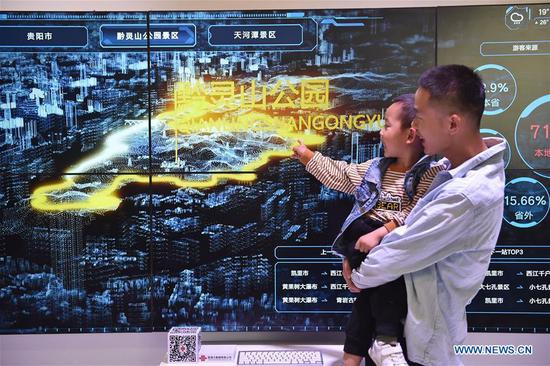United States government restrictions on Chinese technology champions like Huawei provide "enormous" opportunities for European counterparts, according to industry insiders.
Technology firms from the United Kingdom and other European nations still have synergistic business relationships with Chinese counterparts.
"The UK's 5G development needs participation from Huawei. The UK government and companies should make decisions by measuring Huawei's merits rather than political powers," said John McLean, director of the China-Britain Business Council, in an exclusive interview with China Daily.
Technology is reshaping the world order and has become a determining factor for countries to reposition themselves in the global arena, said McLean, who is also special adviser to the lord mayor of London on China.
"The U.S. is leveraging political power to influence global free trade. The real purpose is not just about tariffs, it's about a whole package to force China to do something in the trade war. The U.S. is so eager because the biggest world power is facing rising technological challenges from burgeoning economies, including China," he added.
He said no party should harm the free choice of customers. "If it works for businesses and customers, it should work for everybody."
"The economic cooperation between China and Europe has great potential. Enormous opportunities await to be tapped in sectors including technology, education and healthcare," McLean added.
His words came as China and the U.S., the world's two largest economies, have been embroiled in a trade confrontation over the past year.
Washington has also increased tensions by adding Chinese tech firms, including Huawei, to its Entity List, which would effectively ban U.S. companies from selling components and software to them.
"The worst part of the current trade tension between China and the U.S. is having created uncertainty in the global economy," said Luigi Gambardella, president of ChinaEU, an international association in Brussels that promotes digital and internet cooperation.
Global U.S. companies are likely to suffer heavily if they are prevented from striking deals with Chinese subcontractors and clients, Gambardella said.
"Think about companies like Apple and Microsoft-what will happen to them if globalization is rolled back?" he added.
Both McLean and Gambardella suggested that China and Europe have great potential for cooperation in key emerging sectors.
"China and Europe's cooperation on big data will be promising and the two sides should jointly build a better global digital community," Gambardella added.
"Logistics chain, transportation and production can be largely improved by digitalization."
Xiang Ligang, director-general of Information Consumption Alliance, a telecom industry association, said Chinese companies have long attached great importance to Europe as epitomized by Huawei, which has established 23 research and development centers cross 14 European countries.


















































